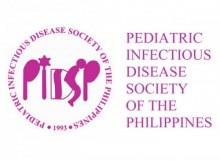Journal 2017 Vol.18 No.1
Chronic Granulomatous Disease: An Unreported Mutation
Melody O. Kiat, M.D., Stéphanie Boisson-Dupuis, Jean-Laurent Casanova, Jacinta Bustamante, Maria Beatriz P. Gepte, M.D., Jaime A. Santos2, M.D.
Melody O. Kiat, M.D., Stéphanie Boisson-Dupuis, Jean-Laurent Casanova, Jacinta Bustamante, Maria Beatriz P. Gepte, M.D., Jaime A. Santos2, M.D.
Abstract:
Chronic Granulomatous Disease (CGD) is caused by defects in the phagocyte NADPH oxidase and occurs in approximately 1:200,000 births worldwide. It presents with early onset of severe recurrent bacterial and fungal infections. This is a case of a 9-year old male with severe, recurrent bacterial infections since 3 weeks of age. Initial Nitroblue tetrazolium (NBT) reduction tests were normal but a DNA analysis revealed a previously unreported homozygous mutation in CYBB, p.S418Y. Dihydrorhodamine (DHR) test showed poor neutrophil oxidation consistent with X-linked CGD. Definitive microbiologic diagnosis is essential for directing therapy for recurrent bacterial and fungal infections. Treatment of infections should be aggressive. Lifelong bacterial and fungal prophylaxis is necessary for prolonged survival. We report a case of confirmed CGD with the previously unreported mutation.
